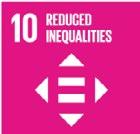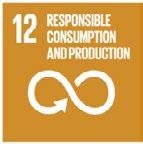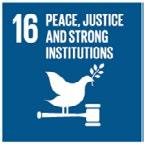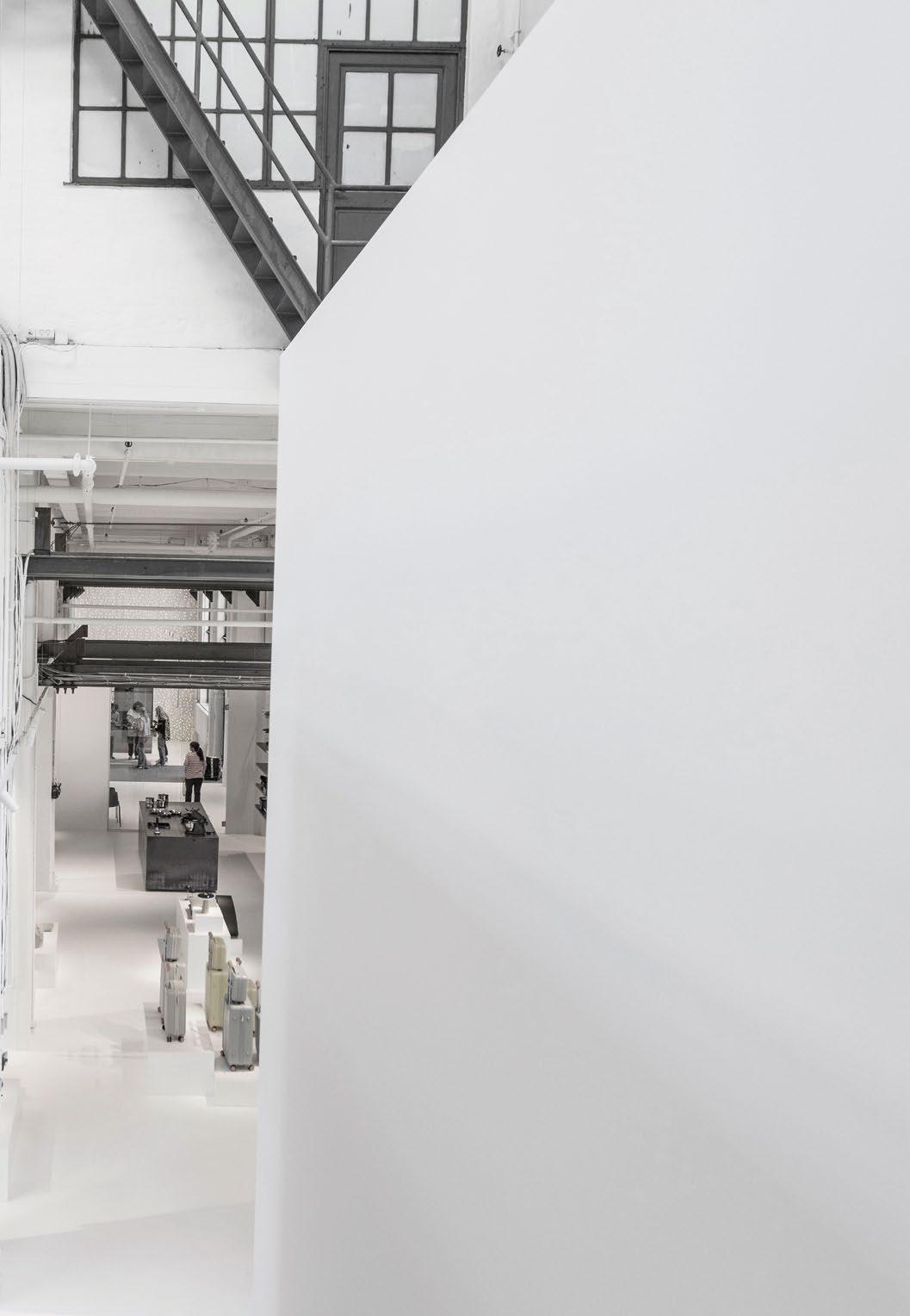UN GLOBAL COMPACT COMMUNICATION

July 2024
STATEMENT OF SUPPORT
GAVEFABRIKKEN CORE STORY
STRATEGY
COMMUNICATION ON PROGRESS HUMAN RIGHTS & LABOUR ENVIRONMENT ANTI-CORRUPTION FOOTPRINT BREAKDOWN


July 2024
STATEMENT OF SUPPORT
GAVEFABRIKKEN CORE STORY
STRATEGY
COMMUNICATION ON PROGRESS HUMAN RIGHTS & LABOUR ENVIRONMENT ANTI-CORRUPTION FOOTPRINT BREAKDOWN
GaveFabrikken's core business is delivering gifts that bring people joy. However, we acknowledge that these gifts have a social and environmental footprint. Therefore, we feel obliged to demonstrate our commitment to the UN Global Compact by supporting its principles, driving results, and influencing our supply chain partners.
We strongly believe that a more strategic and systematic approach to governance, human and workers' rights, environment, and anti-corruption will make our business more resilient to future challenges and drive a more sustainable business. In 2022, we achieved the recognised environmental ISO 14001 certification; this year, we have undergone an audit, and in 2024, we expect to be re-certified. This systematised methodology within areas of environment and climate inspires our approach to working with the social and governance agenda alongside the Global Compact process.
We firmly believe that no one can solve the complex sustainability challenges alone. Our success is intricately linked to the behaviours and actions within our value chain. We are committed to working with our partners to realise our ambitions within and beyond our industry. Partnerships are not just a part of our approach; they are central to it. And we expect to develop these partnerships further in the coming years. Our commitment to respecting human rights extends to all our activities and relationships, including employees, contractors, partners, and suppliers.
While we are still on a learning and transformational journey, we are making steady progress and are committed to continuing this path. In 2023, we developed a procurement policy and a questionnaire to facilitate a more systematic dialogue on ESG impacts and possibilities.
One of our flagship projects is offering gifts with more sustainable benefits, called “Gifts with Care.” In 2023, we were thrilled to see that more than 33,9% of our products were within this category, surpassing our target of 25%. We will continue engaging with our suppliers and partners on this journey and reach out more systematically in the coming years.
In 2023, we also began a more structured journey towards establishing an ESG baseline. We will expand the amount of data and reporting on an ongoing basis, and we believe this work will give us more insight into where we need to focus and improve in the coming years.

As we look to the future, we anticipate the challenges and demands of the sustainability agenda, including requirements from the new EU legislation. However, we are confident that working with our customers, partners, and suppliers can further reduce our negative impact and increase our positive footprint. We remain committed to our purpose of spreading joy with decency, and we are grateful to our employees for their dedication and commitment to this journey.

Nikolai Kiim Owner
GaveFabrikken was established by Nikolai Kiim in 2008, and we deliver more than 1.000.000 Christmas gifts in Denmark, Sweden, and Norway, and with a turnover of 390 million. We are by far the most significant player in our field. We specialise in adapting our solutions to both small and large companies, accommodating the various needs of our customers.
We have approximately 80 full-time employees at our Copenhagen headquarters and Aarhus, Oslo, and Stockholm departments, supplemented by contractors due to seasonal peaks. Many of our gifts are developed in collaboration with some of the largest Danish and international brands and designers. Our large purchasing volume lets us offer our customers exclusive gifts at attractive prices. In addition, we produce products under our label.
The core value of our business is to provide corporate gift items that bring people joy; however, we know that gifts come with a social and environmental footprint. Therefore, we engage with our supply chain partners to reduce our adverse impact and increase our positive impact. Our strategic purpose is to help customers spread joy –with good conscience.
We have been involved in projects to benefit nature, society, and people to make a difference and contribute
to a better future for all. Some initiatives we have been supporting year after year, and other charities we select to support from year to year. In recent years, GaveFabrikken has received several nominations and awards, including Entrepreneur of the Year 2023, 2022, 2020, Owner Manager of the Year 2019 and Gazelle 2020, 2019, 2018, and 2017.

GaveFabrikken A/S
Producers & Suppliers

Our products are corporate gift items. They bring joy; however, they also come with a social and environmental footprint. Our strategic purpose is to help our customers spread joy – with good conscience. We pursue this purpose in two ways:
1. We reduce the negative impact of our operation and value chain
2. We increase our positive impact by engaging with partners in our value chain and with external stakeholders in the communities we are part of.
Carbon emissions
Biodiversity & deforestation
Human and workers' rights
Water
Health and safety
Corruption
Packaging
Air pollution
Sustainable products
Sustainable Governance
GOVERNANCE
GaveFabrikkens’ sustainability strategy and handling of risks are anchored within top management.
A cross-functional sustainable Steering Committee has been established to drive the activities: CEO, CFO, Head of Procurement, Distribution & Supply Chain manager and Communication & Marketing manager. The CFO is appointed Sustainability manager.
Looking across our value chain, we have identified the following material issues which impact our business, supply chains and society.
Through a materiality analysis, we have identified the company's most important environmental, social, and financial issues. We have focused on the countries where our private-label products are produced and the most extensive product categories: soft goods, kitchen products, electronics, furniture, and furnishings. The result plays a role in decisions and activities in both the short and long term. The analysis shows how we and our value chain potentially impact the environment and society and how each area can simultaneously affect our business.
The production and transportation of gift items that rely on fossil fuels, such as coal, oil, and gas, are critical factors in climate change.
GHG emissions cause global warming and other negative consequences for the planet. This may have a negative impact on the UN goal of a 1.5-degree temperature rise.
If GaveFabrikken's supply chain does not deliver on climate reductions, it may ultimately affect customers’ choices and, consequently, GaveFabrikken's market position and business.
Production of items can lead to biodiversity loss due to deforestation, habitat destruction, environmental contamination, and over-exploitation of natural resources. Non-sustainable wood production can contribute to global CO2 emissions by causing deforestation.
Packaging produced with high resource, energy, and water consumption has a life cycle risk, and its disposal could be more environmentally appropriate.
Producers and distributors using fossil fuels, such as electricity generated from coal-fired power plants, cause air pollution. Other causes of air pollution are exhaust from transport and factory emissions.
Many countries where GaveFabrikken operates are very vulnerable to water and water used in production.
Sewage treatment plants are not a legal requirement in many production countries. The production of certain giftware also involves a risk related to the use of chemicals.
There is a risk of corruption in many countries where GaveFabrikken operates.
Some of the factories from which GaveFarikken sources gift items are countries where human rights violations and labour conditions are risk factors. The outside world and NGOs have a strong focus on the violation of rights.
Deforestation and biodiversity loss result in the loss of animal and plant species and negatively affect the health and stability of ecosystems and climate.
If the production of gifts causes biodiversity loss or deforestation, it can negatively impact our reputation and, consequently, our business.
This contributes to global warming, the use of scarce resources and negative impact on the environment.
The possible negative consequences of people being exposed to air pollution include illness and premature death.
Water consumption in production can strain local water resources and freshwater, affecting regional communities.
We established an environmental baseline for Scope 1 & 2. We have switched 9 of 11 cars to electric cars and installed heat pumps.
Supplier Code of Conduct includes requirements to improve environmental issues and address climate change.
We have developed strategic supplier management, including a procurement policy and an assessment questionnaire.
More gift suppliers have been added or updated to our internal supplier evaluation sheet.
Requirements to use FSC sustainable wood when possible.
Packaging guidelines and optimised use of box sizes.
All packaging is FSC 70 or FSC mix, and plastic is recycled and/or can be recycled.
Catalogues have been Nordic Swan Ecolabelled.
Continue collaboration with the organisation World Forrest to straighten the natural ecosystems.
To set science-based targets.
To shift to green energy at the headquarters.
Procurement and management are to work according to supplier policy and improve continuously.
Procurement continues to dialogue with new and current suppliers to identify, mitigate, and reduce ESG risks.
We are maintaining and building longterm and trust-based relationships with producers.
Climate reduction-actions
Set higher standards for material use and design and continue efforts to reduce, reuse, and recycle materials.
Explore more sustainable choices of material used for gift boxes, such as the FSC label.
Physical and mental health and safety awareness can be low. Factory working conditions can create unsafe situations for workers, with inadequate employee training and a lack of protective equipment. Workers can be exposed to hazardous substances and issues such as high humidity, dust, and lack of fresh air.
Helath and safety at GaveFabrikken.
GaveFabrikken delivers more than one million Christmas gifts every year and has the potential to increase positive sustainability impact in collaboration with the supply chain.
Suppliers, partners, and producers operating in many countries, including high-risk countries, require a structured and systematic approach and effective management systems.
Corruption has a negative impact on society in general and on local conditions specifically.
GaveFabrikken's employees can also be exposed to corruption, which is why guidelines are important.
These circumstances can lead to workers being exploited and paid below the minimum wage, working excessive hours, experiencing discrimination, or being forced to live and work under unacceptable and unsafe conditions.
Violating human and labour rights at any point in the value chain can harm GaveFabrikken’s reputation and business. This may lead to a change of producer, potentially resulting in higher costs, increased prices, and decreased sales.
These circumstances can have a negative impact on workers' health and safety, making workers vulnerable to injuries and illnesses caused by exposure to hazardous substances, physical hazards, mental stress and accidents.
GaveFabrikken has the potential to influence conditions at factories and in its own operations positively. Ultimately, this will benefit all stakeholders, including workers, employers, and society.
Increasing sustainable products will reduce emissions and negative environmental impact and protect fundamental human and labour rights. This could have a positive effect on communication, reputation, and sales.
Effective management systems will create awareness and clear structures to prevent, mitigate and drive sustainable development and results.
Living up to stakeholders' expectations on sustainability can positively affect our business and market position.
We have started implementing an anti-corruption programme that includes a policy, a whistle-blower system, awareness, and training.
We are committed to following the UN principles.
We seek suppliers and producers in Asia with BSCI compliance and similar certifications or documented policies and procedures.
The Supplier Code of Conduct has been signed.
Internal procedures and audits are performed in the offices and warehouses to ensure health and safety procedures are followed.
We are creating awareness and training.
We are committed to following the UN principles.
We prioritise suppliers/producers with BSCI compliance and similar certifications or documented policies and procedures where possible.
Mandatory signing of Supplier Code of Conduct. Follow up regularly and implement procedures to prevent and mitigate negative impacts.
Work with suppliers and producers to increase the transparency of gift items’ sustainability profiles, lower negative sustainable impacts, and motivate gift receivers to consume and dispose of gifts responsibly.
We have established a steering committee and defined roles and responsibilities.
We have gathered ESG data, documentation, and processes and implemented a climate reporting system that is CSRDeligible and aligned with regulations.
Continue working with suppliers and producers to increase the number of gift items with sustainability profiles. Increase marketing and communication of ‘gifts with care’ to influence customers' choices.
Preparing for CSRD compliance and reporting.
Internal communication and involvement of employees regarding initiatives and goals.
ESG training of salespeople
We will share our progress on the 10 UN Global Compact principles in the following pages.
Principle 1: The company should support and respect the protection of internationally proclaimed human rights
Principle 2: The company should make sure it is not complicit in human rights abuse
Principle 3: The company should uphold the freedom of association and the effective recognition of the right to collective bargaining
OUR CONTRIBUTION TO

Principles 1-6


Action completed in 2023
Suppliers and partners are signing a new version of the CoC.
We have implemented a revisited version of the CSR policy internally.
We have developed a due diligence process.
Human and labour rights are integrated into the supplier evaluation programme.
We have established a baseline on social data.
Principle 4: The company should uphold the elimination of all forms of forced and compulsory labour
Principle 5: The company should uphold the effective abolition of child labour
Principle 6: The company should support the elimination of discrimination in respect to employment and occupation
Scope
Suppliers of products and services and private-label producers.
Targets 2024
Explore options for expanding value chain collaboration.
We prioritise suppliers with BSCI compliance and similar certifications or documented policies and procedures where possible.
Continue to implement due diligence procedures to prevent and mitigate negative impacts.
We have been working with procurement management to have a more robust and systematic approach based on a procurement policy, comprehensive principles, and assessment tools. We expect the procedures to help us evaluate and focus on businesses and products that work proactively to prevent or reduce adverse impacts and comply with our ethical standards. We also believe that the guidelines will support conversations to address relevant topics and identify potential risks and areas of concern.
The approach ensures transparency and data so we can monitor progress and adjust as needed to meet our sustainability goals. We believe that moving forward, the assessments of, the dialogue and the collaboration with suppliers will support and improve more sustainable practices within

GaveFabrikken and throughout our supply chain. However, we are aware that this will be an ongoing process.
GaveFabrikken is committed to cultivating long-term business relationships based on honesty and open communication. We believe that transparency is crucial to achieving financial and sustainable success.
The company prioritises suppliers with BSCI compliance and other similar certifications or documented policies and procedures whenever possible. This ensures that minimum standards for worker rights are met. However, ensuring compliance throughout the entire value chain is challenging, especially when producers use sub-suppliers. Despite this challenge, we insist on developing and working with improvement.
GaveFabrikken A/S is committed to:
• Comply with applicable laws and regulations.
• Setting targets and objectives to achieve continuous improvement and responsible development.
• Focusing on businesses or products that reduce adverse social impact.
The management at GaveFabrikken A/S is committed to ensuring that employees are skilled, trained, and motivated to carry out their jobs responsibly.
Part of the management's responsibility is to foster open communication with staff about the company’s social impact and how sourcing decisions impact working conditions for suppliers and producers.
Principle 7: The company should support a precautionary approach to environmental challenges
Principle 8: The company should undertake initiatives to promote greater environmental responsibility
Principle 9: The company should encourage the development and diffusion of environmentally friendly technologies

Principles 7-9
Actions completed in 2023
We have established a baseline.
33,9% of our products have been in the category of Gifts with Care (based on volume). (Goal 25%)
72,4% of suppliers on our internal performance evaluation scale have reached five or above. (Goal 50%)
47,5% of our purchases (volume/ number) are with suppliers rated above five on our internal scale. (Goal 50%)
Scope
Suppliers of products and services and private-label producers.
Targets 2024
Reduce CO2 in scope 1 & 2 by 42% in 2030.
Explore the feasibility of setting science-based targets.
35% in the category “Gifts with Care”
Explore more sustainable choices of material used for gift boxes, such as the FSC label.
70% of our purchasing volume is from suppliers with a rating above five on our internal scale.
55% of our purchases (volume/ number) are with suppliers rated above five on our internal scale.
Shift to green energy and replace lamps in the Valby location with LEDs.

Behind “spreading joy with a good conscience” lies a profound responsibility and an obligation to our customers to reduce the environmental footprint of gifts for over one million employees in the Nordic countries. Our customers explicitly demand more sustainable gifts for their employees and comprehensive reporting and ESG documentation from our side. While we are still on a learning and transformational journey, we are making steady progress and are committed to continuing this path. Our environmental efforts are ongoing as we actively and preventively address environmental issues to minimise our overall impact.
Establishing a Baseline
In 2023, we collected data using 2020 as the baseline year and set specific targets for scope 1 and scope 2 emissions (we will begin collecting data on scope 3 in 2024). Additionally, we have set a long-term goal to reduce our footprint in scopes 1 and 2 by 42% in 2030.
In 2023, we decided to transition our car fleet from fossil fuels to electric vehicles. Nine out of 11 cars have shifted to electric cars, and by the end of 2028, we expect 100% electric cars. In connection with our move to a new and more extensive showroom in Valby in 2024, we are switching to green energy and installing LED lighting. In the coming year, we will decide if green energy and LES lighting will be implemented in all locations.
In collaboration with our landlord, we have carried out an additional review of our warehouse in Hedehusene about silver environmental certification and energy labelling A-2010. The A-2010 certification and energy labelling will be evaluated and assessed, and the landlord will also consider investing in a solar system on the roof of the warehouse buildings in 2024.
A category that becomes more popular
We aim to ensure that all gifts become part of the "Gifts with Care" category. Products in this category are selected for their positive environmental and social benefits (see more on page 12). We recognise that this is an ambitious target and that it depends on the engagement of suppliers and producers in sustainable development, as well as their ability to reduce adverse impacts. We maintain a constructive dialogue with our primary and long-term partners and actively engage with private-label producers. A challenge is to obtain documentation and transparency for the new products we offer our customers based on trends and demands.
Another challenge is building an attractive “Gifts with Care” category to make it the customer’s first choice. In 2023, we were happy to surpass our target of 25% of gifts in the “Gifts with care” category, achieving 33,9% instead. The new target for 2024 is to have 35% of our volume/number of gifts in the category of “Gifts with Care.” Therefore, we will continue and even intensify marketing within this category and ensure the training of our salesforce.
GaveFabrikken has an environmental policy and is ISO 14001 (environment) certified. We prioritise suppliers who can show recognised environmental certifications and who set CO2 reduction targets. Suppliers and partners sign our Supplier Code of Conduct and Environmental Policy. We collect information from our suppliers to evaluate their environmental performance, requesting information about third-party certifications such as ISO, FSC, Cradle to Cradle, and ECO Label; if they commit to the UN Global Compact principles, have an Environmental Policy, and aim to be CO2-neutral. We have further developed our procurement management with a policy, guiding principles, and questionnaires to set direction and support dialogue and decision-making. This framework helps us implement a systematic approach. Additionally, we grade our suppliers on their environmental efforts and engage with them to improve their performance. We are updating the evaluations regularly.
The target for 2024 is to ensure that 55% of our purchasing volume comes from suppliers rated above 5 in our internal evaluation scheme. We reached 47% in 2023, three per cent below target.
We have been optimising our packing procedures. Instructions have been reviewed and refined, resulting in small but impactful changes. For instance, we have made the range of boxes visible to employees to facilitate the selection of the most optimal size for shipping. We conduct random checks weekly to monitor the effect, and it works. Furthermore, all packaging material is now FSC 70 or FSC Mix certified.
The next step is to explore possibilities for more sustainable gift boxes.
Products in the “Gifts with Care” category have been selected for their positive benefits. For example, they may be made from surplus or recycled materials, be of high quality and designed for durability, contribute to charitable causes ,or be certified with FSC, OEKO-TEX, GOTS, Fairtrade or similar.
Our overall vision is to ensure that all gifts are captured within the category of Gifts with Care and it is a long-term
goal in close and continuous collaboration with our supply chain to ensure sustainable development. The challenge is also to build a category of Gifts with Care with attractive offers to make it the customer’s first choice.
35% of our products, based on volume, should belong to this category in 2024.
The Kay Bojesen brand was founded in 1932. His wooden animals are some of the most iconic Danish design and is based on the philosophy that good design should be accessible to everyone.
The creative and playful world of animals are made from high-quality sustainable materials from FSC®-certified plantations, and the newest Reworked-series is produced in mixed upcycled wood. FSC-certified wood comes from forests where no more trees are felled than the forests can reproduce. FSC is also a guarantee that flora and fauna are protected, and that the people working in the forest are trained and are given proper safety equipment and pay.


In an exclusive collaboration with Comwell, GaveFabrikken offers a delightful experience in lovely and beautiful surroundings - far away from the daily chores.
Comwell has been named Denmark's most sustainable hotel chain for the sixth year in a row at the Sustainable Brand Index Award, Europe's largest brand index ranking brands according to sustainability. Recently Comwell joined the Science Based Targets initiative (SBTi) as a crucial part of their plan to reduce the overall carbon footprint and achieve carbon neutrality in their own operations by 2030 and across their entire value chain by 2040.


Omhu is part os “uno image who aims to be responsible for quality, while protecting the environment and the people around us. They want to implement meaningful technologies, and spend time and resources finding new and green alternatives.
The textiles made to produce Omhu are both certified with the OEKO-TEX, GOTS, Fairtrade label, Swan label and SA8000 certification, which ensures proper working conditions for farmers and workers.
Kintobe is a Danish company with a vision to pass on the best possible world to future generations. They believe that sustainability is a 360-degree effort including both our environment and the way we exist with each other.
Their bags are produced with a friendly thought towards the earth and its resources, i.e. with 100% recycled nylon, polyester, and plastic and with 100% biobased sponge leather. The water-resistant coating is naturally PFAS-free and the FSC-certified hangtags adds the finishing touch.


Since 1904, Georg Jensen has created timeless Scandinavian design featuring a unique combination of excellent craftsmanship, functionality and aesthetic shapes. Their vision is clear: to create sustainable design that can be passed down through generations. All Georg Jensen stainless steel products are made from at least 60% reused stainless steel that is 100% recyclable. The products also come in environmentally-friendly FSC or Cradle-to-Cradle certified packaging, as part of reducing their overall environmental footprint.

Kähler has created Danish ceramic craftmanship since 1839. The renowned and beloved Omaggio vase, originally designed in 2007, is now produced in a new version, made from leftover materials from previous productions that would otherwise have gone to waste. Under the title Omaggio Circulare, the choice of materials helps to give the popular vase a contemporary and forward-thinking perspective with a focus on reducing environmental impact.

Eva Trio's design classics from 1977 have been given a modern update and have now been created in a more responsible version. The regular steel has been replaced by recycled steel in the body of the pots – a more responsible choice in a world where resources are scarce.
The brand strives to reduce their environmental impact while ensuring a socially sustainable value chain.

The new Rosendahl Soft Spot Solar Circular is made from GRS-certified recycled materials. It exemplifies Rosendahl's commitment to creating design that last, both now and in the future. The parts made from recycled materials are, like the rest of the lantern, designed for disassembly and recycling. The lantern includes a solar panel that harnesses the sun's rays to charge the rechargeable battery with solar energy. The lantern's design features circular forms, reflecting the use of recycled materials that celebrate circularity.


Environmental protection and compliance are paramount to the future. GaveFabrikken believes that ensuring compliance is much easier if you have a framework to create a structured process, provide documentation, and create transparency. Hence, we started working with the environmental management system ISO14001.
We recently underwent an ISO audit and achieved full compliance with ISO standards. One non-conformance was identified during the audit as our safety round was performed too late. This has been corrected to ensure it is carried out on time at all sites.
In our work with ESG, we need to continue coherence between our commitment to the UN Global Compact supporting the principles, our CSR policy, the Code of Conduct, our environmental policy, and ISO 14001, reflected in our overall initiatives and goals. We have built up the necessary competencies we need. Still, there is an ongo-

ing assessment of whether additional resources should be added to the work on environmental improvements and requirements for GaveFabrikken. We regularly ensure information to and involvement of our employees so that they understand our strategy, goals, initiatives, and the impact of their work.
The environmental policy applies to our management, employees, contract workers, suppliers, and gift items producers. We ask all parties to ensure minimal use of energy, materials, and water to prevent extensive use of chemicals and ensure efficient recycling and disposal of waste. By working actively and preventively with environmental issues, we aim to minimise our overall environmental impact.
Principle 10: The company should work against corruption in all its forms, including extortion and bribery

Principle 10
Actions completed in 2023
We have revisited and extended the CoC to suppliers and partners.
We have revisited and expanded our internal CSR policy and have implemented it.
We have developed an Anti-corruption Programme.
We have implemented a whistleblower mechanism.
Scope
Suppliers of products and services and private-label producers.
Employees
Management and board members
Shareholders
Auditors
Targets 2024
Implement the anti-corruption programme.
Training of managers and relevant employees in anti-corruption.
In 2023, we separated our CSR policy into a specific supplier Code of Conduct and an internal CSR policy. Our suppliers and partners are now obliged to sign the new policy, which includes an anti-corruption statement. We have extended the anti-corruption commitment to more detailed ethical standards, integrated it, and are now more precise about the rights to terminate agreements or refuse to do business with business partners who fail to comply.
A trust-based culture
It is essential for us to have a trust-based and open culture in the company. Rule breaches and unethical behaviour must be brought to light and handled correctly. We want GaveFabrikken to be run ethically sound. Who we are and how we behave are crucial for the trust of customers, suppliers, business partners, and the society we are part of.
In 2023, we developed an internal Anti-corruption Program to ensure and maintain ethical standards. The purpose is to prevent corruption, and next year, we will train managers and relevant employees and help them to identify and respond to the risks of corruption. We have also implemented a whistleblower mechanism that allows for reporting various types of misconduct and issues, including but not limited to reporting corruption and conducting internal investigations. This mechanism provides a safe and confidential way to raise concerns anonymously. It can also give valuable insights into potential ethical violations that can help us to improve policies and procedures if necessary. We believe this creates a solid foundation to ensure that all our business activities are conducted ethically, transparently, and responsibly.

OUR ETHICAL COMMITMENT
GaveFabrikken A/S is committed to:
• Comply with applicable laws and regulations.
• Fostering a culture of anti-corruption.
Management is committed to leading by example and avoiding corrupt practices. Part of its responsibility is always to ensure trust and open communication about these risks.
The graphics illustrate the breakdown of our CO2 footprint across Scopes 1, 2, and 3.3. Scope 3.3 includes emissions from fuel and energy-related activities not accounted for in Scopes 1 and 2.
CATEGORIES
CATEGORIES
*The data is based on Denmark and Sweden. The Swedish employees are located at the headquarters in Valby. Norway is not yet included in the report.
** The data follows GaveFabrikken's annual reporting period from May 1st to April 30th. However, the data regarding waste has been reported according to the calendar year.
Description
◦ The climate calculations are made according to the GHG protocol.
◦ The calculations in this report are based on the Greenhouse Gas Protocol, an internationally recognised method and the most widely used standard for CO2 calculations. The GHG Protocol categorises emissions into Scope 1 (direct emissions), Scope 2 (indirect emissions from energy), and Scope 3 (indirect emissions from the supply chain), further divided into 15 subcategories.
◦ In the calculations, methodological choices have been made: Emissions from electricity are calculated using the marked-based method, reflecting emissions defined by contractual instruments based on certificates of origin. The Radiative Forcing Index is included in the calculations.
◦ Organisationally, the report is delimited in accordance with the principles of "Operative Control."
◦ In the preparation of the report, efforts are made to adhere to the five accounting principles of the GHG Protocol: Relevance, Completeness, Consistency, Transparency, and Accuracy, ensuring a credible carbon footprint.
◦ The calculations were performed by Climaider ApS based on data shared by GaveFabrikken A/S.
Scope 1 emissions
Scope 2 emissions
Emission factors
Market-based method
CO2 equivalents (CO2e) Direct emissions resulting from GaveFabrikkens own combustion of fuels and materials. Scope 1 emissions are calculated based on the diesel consumption for company cars and the emission factor for diesel.
CO2 equivalents (CO2e) Scope 2 emissions: Indirect emissions derived from the energy used to produce electricity, district heating and heat pumps for GaveFabrikkens own use.
CO2 equivalents (CO2e) Greenhouse gases (GHG) are calculated based on the emission factors for each fuel type/energy source (diesel, electricity, district heating, heat pumps) and normalised to CO2 equivalents (CO2e).
CO2 equivalents (CO2e) In the calculations, methodological choices have been made: Emissions from electricity are calculated using the marked-based method, reflecting emissions defined by contractual instruments based on certificates of origin. The Radiative Forcing Index is included in the calculations.
Energy consumption kWh
Fuel consumption litre of diesel
Waste kg
Packaging kg
Energy consumption kWh Energy consumption = ∑ (spent fuel type (t) * energy factor per fuel type) per fuel type + (spent electricity (incl. renewable energy) (MWh)*3.6) + (spent district heating/cooling incl. renewable sources of heating/cooling (GJ)).
Calculation is from The Danish Finance Association, CFA Society Denmark, Danske Revisorer, Nasdaq (publication January 2022).
The number of litres of diesel used in leased cars.
The calculations include all waste, the primary quantities of which come from packaging used to deliver gifts. All waste is sorted.
Packaging includes cartons, boxes, corrugated cardboard, tretch wrap, bubble mailers, plastic shipping bags etc.
◦ We have primarily used accounting principles recommended by the Danish Finance Association, CFA Society Denmark, Danske Revisorer, Nasdaq (publication January 2022).
Full-time workforce FTE
Gender diversity %
Gender diversity for other %
Full-time workforce = FTEs + temporary labour.
FTEs are full-time employees + compensated overtime + converted hourly workers and temporarily employed/temp workers converted into full-time equivalents.
The calculation is based on the fact that the underrepresented gender is men. We have based the calculation of gender diversity = ((Men FTEs + Men temporary workers)/ (Full-time work force)) * 100.
Gender diversity for other levels of management = ((Men managers)/ (All managers)) * 100. levels of management Includes the management team and employees in management positions with personnel and/or professional responsibility.
Employee turnover rate %
Sickness absence Days/FTE
Employee turnover rate = ((Volunteers + Involuntary leaving FTEs)/FTEs) * 100.
Employee turnover rate is calculated for both voluntary and involuntarily leaving employees. Retirements are included in the involuntarily leaving employees.
Sickness absence = (Number of sick days for all own FTEs during the period)/(Total FTEs). Number of full days that all own employees are sick and therefore not at work compared to the total number of FTEs.
◦ We have primarily used accounting principles recommended by the Danish Finance Association, CFA Society Denmark, Danske Revisorer, Nasdaq (publication January 2022).
Gender Diversity on %
As women are the underrepresented gender on our Board of Directors, the Board's gender the Board of Directors diversity is calculated as follows: Gender diversity of the Board of Directors = ((Board members elected at the general meeting)/(All members of the Board of Directors elected at the general meeting)) * 100.
At GaveFabrikken A/S, we wish to support a sustainable development for the benefit of nature, society, and people. From the very beginning, we have been involved in projects where we and our customers help to make a difference and contribute to a better future for all.
Below you can find the initiatives we have been supporting continuously over the years since the beginning, not to mention all the additional charities we select to support from year to year.
Operation Julegaveregn
(Operation Myriad of Christmas Gifts) Since 2008, GaveFabrikken A/S has been the main sponsor of the Danish charity initiative Operation Julegaveregn. The organisation collects donations which all go to Christmas gifts for children at Danish orphanages and 24-hour care centres.
Danmarks Indsamling
(The united Danish appeal for funds)
Danmarks Indsamling helps the most vulnerable people in the world through specific projects that support UN’s global goals. Again this year, GaveFabrikken A/S supported Danmarks Indsamling to contribute to these very important projects.
Eventyr Jul (Adventurous Christmas)
Every year on Christmas Eve, the Danish organisation Eventyr Jul celebrates Christmas for approx. 300 vulnerable children and their parents. Together with our partners, GaveFabrikken A/S donates Christmas gifts which the children can give to their parents for Christmas.
Redd Barna (Save the Children)
GaveFabrikken A/S supports the Norwegian Redd Barna which works for a world that respects every child’s right to survival, protection, development, and participation in line with the UN’s Convention on the Rights of the Child as well as other human rights conventions.
Sykehusbarn (Hospital Children)


GaveFabrikken A/S supports the Norwegian foundation Sykehusbarn which works to ensure that children who are affected by their own or others’ serious illness should have positive experiences filled with joy, smiles, and laughter during the treatment period in the hospital.
Svenska Röda Korset (Swedish Red Cross)
Svenska Röda Korset helps people to break isolation and offers psycho-social support. PresentBolaget, our Swedish subsidiary, supports Röda Korset in their work to make a difference for people in need.
Verdens Skove (World Forest)
We collaborate with the organization World Forest and have purchased 100,000 square feet of forest, thereby strengthening the natural ecosystems against global climate change.
Operation Julegaveregn (Loosely translated: “Operation It’s raining X-mas presents”) is an award-winning social charity for the benefit of children placed in care facilities outside of their families.
Operation Julegaveregn is doing fundraising to ensure a Christmas present for all children placed in non-profit care facilities. Since 2006, the charity has donated more than 30.000 individual presents to socially vulnerable children in care.
The object of the project, aside for ensuring actual presents to level social taboos and provide joy, is to strengthen the connection between the children and civil society while at the same time reminding all of us of the existence of these children, and the collective responsibility to care for their wellbeing.
By ensuring individually purchased gifts bought with the specific child in mind, the child is recognized as a person of value, rather than a social case number.
Operation Julegaveregn has prominent ambassadors from Danish culture and business environment. Several of the children have gone on to help the organization in adulthood.
The charity has been recognized with the annual award from the national Joint Council of Children’s Affairs (Børnesagen.dk).
The national fund-raising is approved by the Danish Civil Service, and presents a fully audited annual report.
In 2023, Operation Julegaveregn managed to arrange presents for more than 2.300 children in the target group.
GAVEFABRIKKENS ROLE
Since the establishment of GaveFabrikken, we have been main sponsor for Operation Julegaveregn.
The organization is not only non-profit. All work is done on a voluntary basis, and 100% of all collected funds is directed toward the benefit of the children.
GaveFabrikken ensures a yearly sponsorship, covering all necessary expenses, such as hosting fees, postage etc. This allows the organization to continue their message: “All donations go toward the children”.
Furthermore GaveFabrikken has added the charity to the gift portfolio, making it possible to donate the value of corporate X-mas presents directly to the cause. The charity has informed us, that this has proven a major contributor to the success of the charity in recent years.
GaveFabrikken has collaborated with the organizers of the charity to develop their charitable proposition and increase the organizational reach.
Save the Children (REDDBARNA) has been working for children's rights for more than 100 years. It is a member-driven rights organisation that is politically and religiously neutral. The organisation is uncompromising when it comes to fighting for children's rights, even when it is dangerous or unpopular. Save the Children's values are based on the UN Convention on the Rights of the Child and the Universal Declaration of Human Rights.
Save the Children works long-term to change children's lives. The organisation does not believe in temporary solutions that produce short-term results. That's why the organisation works to create lasting change in a sustainable way. Because the organisation is present in 116 countries, Save the Children is able to carry out both long-term aid work, preventive work and - when needed - life-saving emergency aid. When war and disasters strike children, the organisation's disaster response teams are in place within a short time to save children's lives. In 2023, international Save the Children reached 47.4 million children in 116 countries. Millions of children realised their right to better education, health and protection.
An important part of Save the Children's method is that the children themselves are involved. The organisation fights for children to have a greater say in matters that affect their lives and their everyday lives. Every year, Save the Children talks to thousands of children about issues that concern them, listens, analyses their problems, fights for good solutions and raises children's voices.
Save the Children also works in Norway. Norway has been voted the world's best country to live in several times. Nevertheless, we know that many children in Norway grow up with violence and abuse, in poverty, are discriminated against or have their rights violated in other ways. Save the Children is present throughout the country through volunteers, local groups or regional offices. They work directly with vulnerable children, offer lots of free educational material to schools and kindergartens, fight against violence and sexual abuse and influence politicians so that all children in Norway have their rights fulfilled.
We hope you have enjoyed reading our Communication on Progress. If you have any comments or questions, we are happy to receive these.
PUBLISHED BY GaveFabrikken A/S
CONTACT PERSON Mette Høeberg Sørensen

DENMARK
info@gavefabrikken.dk
+45 70 70 20 27 gavefabrikken.dk
NORWAY
info@gavefabrikken.no
+47 23 90 50 53 gavefabrikken.no
SWEDEN
info@presentbolaget.se +46 0771-600005 presentbolaget.se